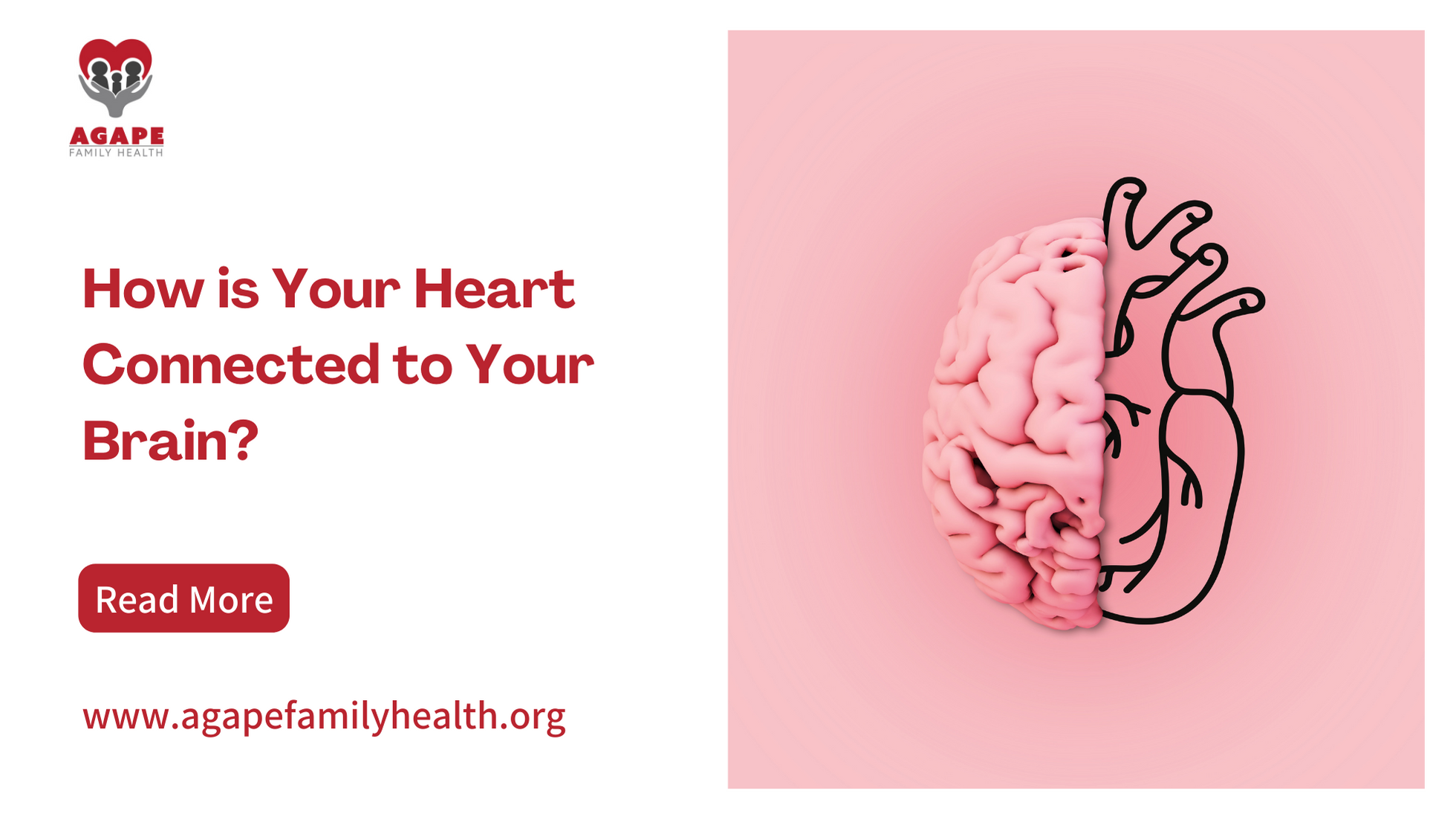The intricate relationship between the heart and the brain is a fascinating and vital aspect of human health. This connection, which intertwines the cardiovascular and nervous systems, plays a critical role in both physical and mental well-being. Understanding this connection can empower individuals with knowledge to improve their overall health and prevent various diseases. This article explores the scientific basis of the heart and brain connection, its impact on health, and practical advice for nurturing this essential relationship.
The Scientific Basis of the Heart and Brain Connection
The scientific basis of the heart and brain connection encompasses complex interactions across neurological, hormonal, and immune system pathways. These interactions form a dynamic network that influences our physical and mental health in profound ways.
Neurological Pathways
The autonomic nervous system (ANS) is a critical player in the heart-brain dialogue. It functions as the body’s automatic pilot, controlling physiological responses that maintain internal balance or homeostasis. The sympathetic nervous system (SNS) and the parasympathetic nervous system (PNS) are two arms of the ANS with opposing roles, yet they work in concert to regulate heart rate, blood pressure, and other vital functions.
The heart has its intrinsic nervous system, sometimes referred to as the “heart brain,” which communicates with the brain in the head via the ANS, influencing emotional processing and higher cognitive functions. This bidirectional flow of information means that not only can stress or emotions trigger changes in heart rate or blood pressure, but the state of the heart can also influence emotional and cognitive processes.
Research has revealed that heart rate variability (HRV) — the variation in the time interval between heartbeats — is a key indicator of the ANS health and balance. High HRV is associated with good emotional regulation and resilience to stress, while low HRV is linked to anxiety, depression, and cardiovascular diseases.
Hormonal Pathways
The endocrine system, which encompasses glands that secrete hormones into the bloodstream, plays a vital role in the heart-brain connection. The hypothalamus, a small region at the brain’s base, acts as the command center, regulating the stress response through the hypothalamic-pituitary-adrenal (HPA) axis.
During stress, the hypothalamus signals the pituitary gland, which in turn instructs the adrenal glands to release cortisol and adrenaline. These “stress hormones” increase heart rate, blood pressure, and energy supplies. While this response is essential for survival in acute situations, chronic stress and the resulting prolonged elevation of stress hormones can lead to detrimental health effects, including cardiovascular diseases and impaired brain function, illustrating the direct impact of hormonal pathways on the heart-brain connection.
Read more: Protective and Damaging Effects of Stress Mediators
Immune System Link
The immune system’s role in the heart-brain nexus is increasingly recognized, particularly the effects of inflammation. Chronic inflammation, a persistent, low-level immune response, can act as both a cause and effect of stress and emotional disturbance, creating a vicious cycle that impacts both heart and brain health.
Pro-inflammatory cytokines, signaling proteins released by the immune system, have been found to influence mood and behavior, contributing to the development of depression and anxiety. Furthermore, inflammation can contribute to the buildup of plaque in arteries, a key factor in cardiovascular disease, and is also implicated in neurodegenerative diseases, linking systemic inflammation to cognitive decline and mental health disorders.
This complex interplay between the heart and brain through neurological, hormonal, and immune pathways underscores the interconnectedness of our physical and mental health. Understanding these connections not only highlights the importance of holistic approaches to health care but also opens up new avenues for prevention and treatment strategies targeting the heart-brain axis. As research in this area continues to evolve, it holds the promise of unlocking new insights into how we can better care for both our hearts and minds.

Impact of the Heart and Brain Connection to Health
The intricate interplay between the heart and brain extends far beyond their primary functions, significantly impacting overall health and well-being. The heart-brain connection is a dynamic relationship that influences the development and progression of cardiovascular diseases (CVDs), mental health disorders, and cognitive function. Understanding this connection is crucial for developing comprehensive health strategies to mitigate these conditions, which are among the leading causes of morbidity and mortality worldwide.
Cardiovascular Health and Mental Health: A Two-Way Street
The link between cardiovascular health and mental health is a compelling example of the heart-brain connection in action. Research has consistently demonstrated that mental health disorders, such as depression and anxiety, can lead to increased risk of developing cardiovascular diseases. Conversely, individuals with CVDs are at a higher risk of experiencing mental health issues, suggesting a bidirectional relationship.
Depression and Heart Disease
Depression has been recognized as a significant risk factor for coronary artery disease (CAD), the most common type of heart disease. Individuals with depression are more likely to develop CAD, partly because depression affects the body in ways that increase the risk factors for heart disease. These include changes in heart rate and blood circulation, increased inflammation, and alterations in the hypothalamic-pituitary-adrenal (HPA) axis, which can lead to higher cortisol levels and subsequent heart damage. Furthermore, depression can lead to behaviors that compromise heart health, such as poor diet, lack of exercise, and smoking.
Anxiety, Hypertension, and Heart Failure
Anxiety disorders are associated with several mechanisms that increase the risk of hypertension (high blood pressure) and heart failure. Anxiety can cause temporary spikes in blood pressure and heart rate, and chronic anxiety may lead to sustained high blood pressure, a major risk factor for heart disease. The stress response associated with anxiety can also result in increased levels of adrenaline and cortisol, which, over time, can lead to heart damage.
Learn more about heart and gut health.
Cognitive Function: The Cardiovascular Connection
The relationship between cardiovascular health and cognitive function underscores the critical role of the heart-brain connection across the lifespan. Several cardiovascular risk factors, such as hypertension, high cholesterol, and obesity, have been linked to an increased risk of cognitive decline and dementia, including Alzheimer’s disease and vascular dementia.
The Role of Blood Flow
One key factor in this connection is blood flow. Adequate blood flow is necessary for brain health, as it delivers oxygen and nutrients while removing waste products. Conditions that impair blood flow, such as atherosclerosis (the buildup of plaques in the arteries), can lead to decreased brain function and an increased risk of cognitive impairment.
Inflammation and Cognitive Decline
Inflammation, a common thread in cardiovascular disease, mental health, and cognitive function, also plays a significant role in cognitive decline. Chronic inflammation can lead to the production of cytokines that can cross the blood-brain barrier, potentially leading to the development of neurodegenerative diseases by promoting neuronal damage and plaque formation.
Implications for Health and Well-being
The heart-brain connection has profound implications for health policy, medical research, and individual lifestyle choices. Promoting cardiovascular health through diet, exercise, and stress management can have the dual benefit of improving mental health and cognitive function. Conversely, addressing mental health issues through therapy, medication, and lifestyle changes can contribute to better cardiovascular health and reduced risk of cognitive decline.
This bidirectional relationship highlights the importance of a holistic approach to health, recognizing that interventions targeting either the heart or brain can have widespread benefits for an individual’s overall well-being. As research continues to unravel the complexities of the heart-brain connection, it offers hope for more effective prevention and treatment strategies for cardiovascular diseases, mental health disorders, and cognitive decline, ultimately leading to improved quality of life and longer, healthier lives.
How Can You Nurture Your Heart and Brain Connection?
Nurturing the heart-brain connection is a holistic approach to health that recognizes the interdependence of cardiovascular and cognitive well-being. This approach advocates for lifestyle changes and health management strategies that have a positive impact on both heart health and brain function, ultimately leading to a more balanced and healthy life.
Exercise
Physical activity is one of the most effective ways to strengthen the heart-brain connection. Regular exercise helps maintain a healthy weight, lowers blood pressure, improves cholesterol levels, and reduces the risk of chronic diseases such as heart disease, diabetes, and stroke. From a neurological perspective, exercise stimulates the production of growth factors that improve brain health, such as brain-derived neurotrophic factor (BDNF). It enhances cognitive function, boosts mood, and has been shown to decrease symptoms of depression and anxiety. Engaging in at least 150 minutes of moderate aerobic activity or 75 minutes of vigorous activity weekly, along with muscle-strengthening exercises on two or more days a week, is recommended by health organizations worldwide.

Diet
A nutritious diet supports both cardiovascular and cognitive health. Diets rich in fruits, vegetables, whole grains, and lean proteins provide essential nutrients that reduce inflammation, a common risk factor for both heart disease and cognitive decline. The Mediterranean diet, characterized by a high intake of vegetables, fruits, nuts, seeds, legumes, whole grains, fish, and olive oil, with limited red meat and processed foods, has been associated with lower rates of heart disease and a reduced risk of cognitive impairment. Omega-3 fatty acids, found in fatty fish, flaxseeds, and walnuts, are particularly beneficial for heart health and cognitive function, contributing to lower blood pressure and improved brain cell communication.
Stress Management
Chronic stress is a common enemy of both heart health and mental well-being. Techniques such as meditation, yoga, and deep breathing exercises are effective stress management tools that can lower blood pressure, reduce heart rate, and decrease cortisol levels, mitigating the harmful effects of stress on the heart. These practices also promote mental health by enhancing emotional regulation, decreasing symptoms of anxiety and depression, and improving sleep quality. Mindfulness meditation, in particular, has been shown to reduce stress and improve cognitive functions like attention, memory, and executive function.
Sleep
Adequate sleep is essential for the maintenance of the heart-brain connection. Sleep allows the body to repair and regenerate, playing a crucial role in cardiovascular health by regulating blood pressure and heart rate. For the brain, sleep supports critical functions such as memory consolidation, learning, and emotional processing. Chronic sleep deprivation has been linked to an increased risk of cardiovascular disease, obesity, diabetes, and cognitive decline. Adults should aim for 7-9 hours of quality sleep per night, adopting good sleep hygiene practices such as maintaining a consistent sleep schedule, creating a comfortable sleep environment, and avoiding stimulants before bedtime.

